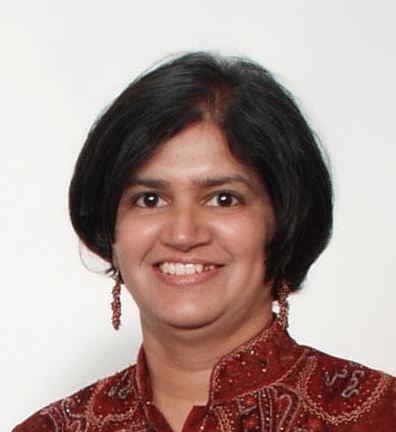The challenges and opportunities of research in emerging regions: researcher perspectives
We need research from around the world to address global challenges. Yet for researchers in emerging regions, carrying out and publishing research is considerably more challenging. From financial pressures – such as access to publications and grant funding – to a lack of events, networking, and mentoring opportunities, there are many hurdles to be navigated.

However, much is being done to address these challenges, supporting authors in emerging regions. Organizations like Research4Life, for example, are working with publishers such as Taylor & Francis to provide free or low-cost access to peer-reviewed research. It also provides in-country and online e-resource training.
Our Special Terms for Authors & Researchers (STAR) is another example. This unique initiative was developed to provide authors and researchers in the Global South with free access to articles from our leading international and regional journals across subject areas.
And while the challenges are many, opportunities also exist for researchers in emerging nations. As one of the researchers we spoke to for this blog says, “Emerging regions are where the opportunities for exciting new science lie.”
To find out more, we spoke to several researchers from emerging nations who spoke about their challenges and offered advice for others in similar positions.
Researcher profiles

Veena Srinivassan, India
Co-author, Prediction in a socio-hydrological world

Mpho Ngoepe, South Africa
Author, Archival orthodoxy of post-custodial realities for digital records in South Africa

Christopher Isike, South Africa
Co-author, The Discordant Soft Power Tunes of South Africa’s Withdrawal from the ICC

Suzy Graham, South Africa
Author, Drivers of the Foreign Policies of Southern African Small States

Sola Ogunnubi, South Africa
Co-author, The Discordant Soft Power Tunes of South Africa’s Withdrawal from the ICC
Post information
Related posts
Key challenges: Funding, training, lack of journals
Funding is often raised as one of the key challenges for researchers in emerging nations, but we were interested to hear what the researchers’ own opinions were. So we asked them, ‘What are the key challenges you have faced as a researcher in an emerging region?’
VS: I have found that research in the developing world is often a watered-down imitation of what’s published in the West. Frequently, there is no link between the science being done and the real-world conditions in which it is applied. Scholars are increasingly specialized in narrow disciplinary topic areas, which can produce very specialist articles with no connection to public discourse.
There are several reasons for this. The first lies with training: teaching departments can often force researchers into narrow research topics. Second, there is the wider demise of a fieldwork culture in favor of computer simulation; a whole generation of young scholars has never visited the field, instead relying on (potentially flawed) secondary data for their primary research.
MN: Being a budding or even seasoned researcher in sub-Saharan Africa comes with great challenges. For example, there are only three mainstream journals in my area of interest. This made it especially difficult for me to get my work published starting out as a novice researcher. My research mainly focuses on archives, records management, and auditing – an often marginalized field in South Africa. So I got myself a mentor and collaborated with senior researchers, which has helped me to gradually increase my confidence and start to build my publication record.

CI: As an emerging researcher, the key challenges I faced were: finding my identity and standpoint as a researcher; a lack of research funding support (more so in Nigeria); and grappling with the temptation to target quantity instead of quality.
Advice for other researchers: Communication and collaboration
From carrying out interdisciplinary research to focusing on collaboration, the researchers we spoke to had some great tips when we asked them, ‘What advice would you give to other researchers in emerging regions?’
VS: Make your research as relevant and practical as possible. My research philosophy is simple: to do research that is problem-driven, empirical, and interdisciplinary, then communicate the results back to stakeholders. Most importantly, I am committed to doing science that matters. This means participating in public debate to understand the critical science gaps, writing in simple language for both scientific publications and popular articles, and disseminating the research findings widely through visual media.
But I work for an unusual research organization that encourages this. As a community, we need to change the culture of research, teaching students to do empirical research and encouraging fieldwork. We also need to convince funders, departments, and journal editorial boards to welcome interdisciplinary research.

MN: My advice to budding researchers in developing regions: collaborate. Collaboration has been vital for me personally and is particularly important for those in the early stages of their careers. It may bring about a cross-fertilization of ideas, helping to create new perspectives which would never have emerged working alone. Robust, mutually beneficial collaborative research linking academy and practice, as well as local and international projects, can be the stepping stone towards the international arena, leading you to the top researchers in your field.
SG: Finding time for research can be difficult if you are also a lecturer with teaching responsibilities, as I am, but remember that the research you do can make you a better lecturer. The whole process is worthwhile and the ‘treasure hunt’ reward is the completed piece or article. My advice: find a journal that suits your discipline and make it happen!
Opportunities for early career researchers: Try something different, find your niche
Starting a career in academia is tough, no matter where you live and work. But for researchers in emerging nations, it can be even more of a challenge. We asked, ‘What advice would you give to students or early career researchers based in emerging nations who are considering a career in academia?’
VS: Don’t be afraid to try something different. Emerging regions are where the opportunities for exciting new science lie. In my own field of water resources research, for instance, these regions are changing at an unprecedented rate, so human contributions to changing the water cycle can no longer be discounted. To make matters worse, these regions have very little historical water data, so we cannot apply models developed for data-rich western countries to developing areas. Emerging regions offer opportunities for new science and novel data collection, including low-cost sensors, satellite analyses, and citizen science.
MN: Identify your niche area and work hard to integrate yourself within it. If you find yourself alone in the early stages of research, start by publishing locally, and then expand globally by targeting journals published by reputable publishers such as Taylor & Francis. Don’t be afraid to develop more ambitious targets and expand your horizons as you progress. As the old saying goes, ‘if you never leave your mother’s kitchen, you will think your mother is the best cook’.
SO: There are a lot of intricacies in publishing that young scholars can overcome with the right kind of support. My main advice would be to build a database of accredited journals in your field. This will help you to identify which journal accurately aligns with the argument you are trying to present.
CI: Remember: slow and steady can win the race. I like to think of this as my personal mantra. Plan your time carefully to work hard and smart, gradually working your way towards bigger and more ambitious research projects as you progress your career.


For more information about the various ways we can help researchers in emerging regions, visit our STAR: supporting authors in emerging regions page.
Where to next?
If you’ve found this blog post helpful make sure you look at:
Our podcast series for researchers – 15 minutes to develop your research career
Our Insights newsletter – the latest news, tips, and resources delivered straight to your inbox.